
General information
Gastritis is inflammation, erosion or irritation of lining of the stomach. It can be acute or chronic. Generally it develops when mucus barrier becomes weak and stops preventing acids and digestive juices to affect the wall of stomach. If untreated, gastritis can lead to ulcers and increase the risk of stomach cancer.
Symptoms usually include: the nausea, pain and bloating in abdomen, black stool, hiccups, sense of burning in stomach, vomiting blood, indigestion and appetite loss.
Gastritis can be diagnosed by endoscopy (tube with attached camera inserted into stomach through mouth), blood test (to determine presence of Helicobacter) or stool test (blood in stool can be sign of gastritis).
For treatment physician may prescribe antacids, antibiotics, vitamins and advise you to avoid spicy food.
Causes
Bacteria. Helicobacter pylori is the most common cause for gastritis. It is considered that the half of world population is infected with this bacterium. Most of infected doesn’t experience any complications though the reason for this is unknown. It is assumed that genetics may be responsible for sensitivity to the bacterium and the reason may originate in certain habits and life circumstances like smoking and lot of stress as well. Drugs. Pain killers can be reason for development of gastritis if they are taken regularly and in high doses. They destroy the substance that protects lining of stomach. Alcohol. Too much alcohol consumption can affect lining of stomach too. It usually causes acute gastritis. Autoimmune gastritis. This is a rare condition where body attacks its own cells in stomach. This destroys defensive stomach barrier thus results in gastritis. This type of gastritis is associated with other autoimmune conditions, Addison’s disease, Hashimoto’s disease and type 1 diabetes. Back flow of bile or bile reflux disease. Fluid that aids in digesting fats is called bile and it is created in liver and stored in gallbladder. From gallbladder it travels to small intestine while sphincter muscle prevents it from entering into stomach. In case of bile reflux disease, sphincter muscle is damaged and cannot fulfill its function therefore it leads to gastritis. Sphincter muscle can be sometimes surgically removed. Stress. Situations of serious stress usually cause acute gastritis. Other illnesses. Gastritis may be related to HIV, AIDS, Crohn’s disease, liver and kidney conditions, parasitic infections, etc. Age factor. Older people are at higher risk since in time lining of stomach becomes thinner. They are also susceptible to Helicobacter pylori and autoimmune conditions.




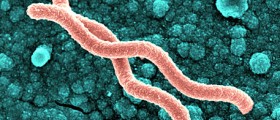
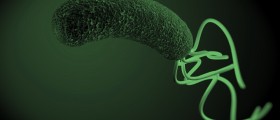
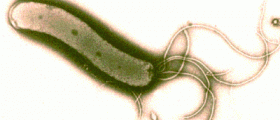

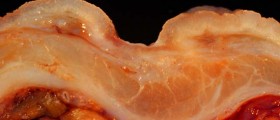
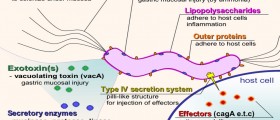







Your thoughts on this
Loading...